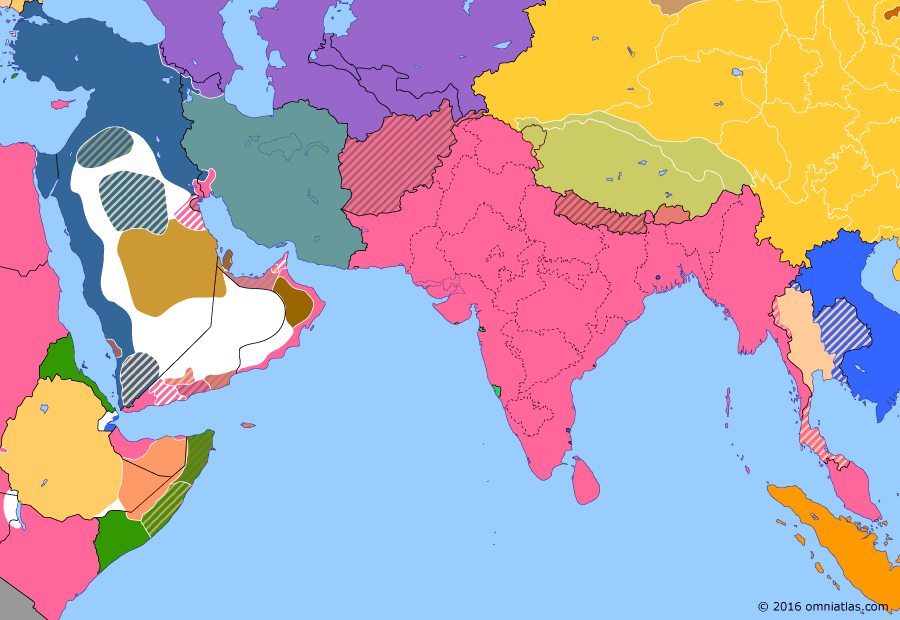Southern Asia 1915: Ottoman Raids in Persia and Sinai
29 January 1915
29 Jan 1915
Great War in the Middle East
1880–1914 Pax Britannica
1914–1917 Great War in the Middle East
1917–1918 Fall of the Ottoman Empire
1918–1923 Anglo-French Overreach
1923–1934 Rising Nationalism
1934–1940 Arrival of the New Order
1940–1941 World War II: The Middle Eastern Theater
1941–1945 World War II: The South-East Asian Theater
1945–pres Independence
Ottoman Raids in Persia and Sinai
6 Nov 1914 Outbreak of the Great War
29 Dec 1914 Battle of Sarikamish
29 Jan 1915 Ottoman Raids in Persia and Sinai
28 Apr 1915 Gallipoli Campaign
14 Sep 1915 Niedermayer-Hentig Expedition
22 Nov 1915 Persian Campaign
5 Jan 1916 Siege of Kut
21 May 1916 Russian invasion of Anatolia
9 Jul 1916 Arab Revolt
30 Nov 1916 Pacification of South Persia
11 Mar 1917 Mesopotamian Campaign
6 Jul 1917 Sinai Campaign and Battle of Aqaba
The defeat at Sarikamish did not end smaller scale Ottoman offensives, with one Turkish unit even managing to briefly capture the poorly defended Persian city of Tabriz from the Russians. Further south the Ottomans expanded the war in Persia by allying with local tribesmen to threaten the British-held oilfields, while in Egypt they crossed the Sinai to contest British control of the Suez Canal.
